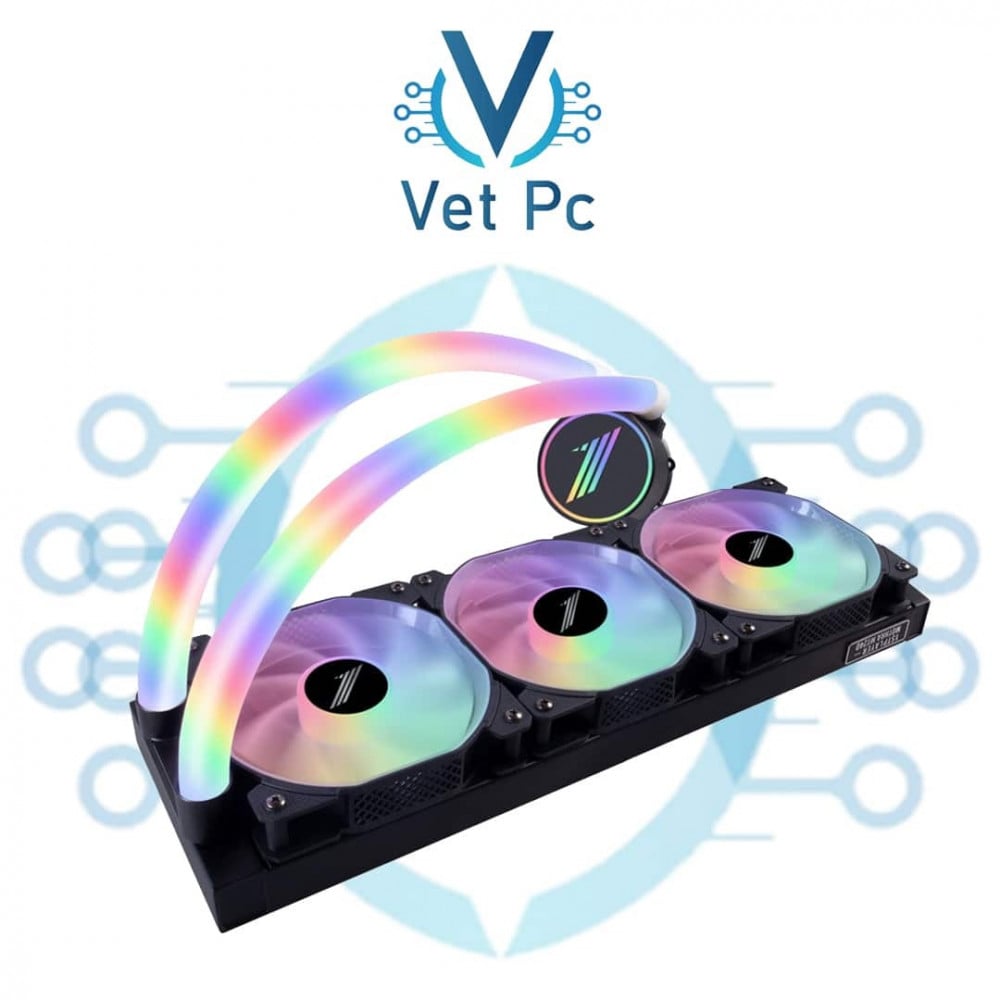processor cooler
- The processor cooler is one of the essential components of a computer, used to cool the processor, prevent overheating, and improve performance. In this article, we'll discuss the different processor coolers and their features.
1- Air coolers:
- Air coolers are the most widely used and widely available on the market. They consist of a fan, heatsinks, and copper pipes that transfer heat from the processor to the heatsinks.
- Air coolers are readily available, inexpensive, and operate virtually silently and require little maintenance. However, they are bulky and may not fit into some case sizes and may not be able to cool the most demanding processors.
2- Liquid coolers:
- Liquid coolers cool the processor by passing coolant through tubes that transfer heat from the processor to dedicated heatsinks.
- Liquid coolers offer powerful performance and the ability to cool the most demanding processors. They operate silently and allow users to select from a variety of pump, tube, and heatsink options. However, they are expensive and require regular maintenance.
3- Liquid nitrogen coolers:
- Liquid nitrogen coolers use liquid nitrogen to cool processors, and are the fastest and most efficient way to cool the most demanding processors.
- These coolers work similarly to liquid coolers, but use liquid nitrogen instead of water.
- Liquid nitrogen coolers also offer very powerful performance, instant cooling, and high processor speed. However, they are very expensive and require regular maintenance and special care.
In general, you should choose a processor cooler that suits your needs and budget, and that provides powerful performance and efficient cooling for the processor. Factors such as size, price, noise, maintenance requirements, and compatibility with the rest of your computer should be considered.
You can also benefit from product reviews and previous user experiences to choose the most suitable cooler. It's worth noting that installing the cooler correctly according to the manufacturer's instructions can improve processor performance and prolong its life.
What factors should be considered when choosing a processor cooler?
When choosing a processor cooler, the following factors should be considered:
- Device size: The size of the device in which the cooler will be installed must be taken into consideration. A cooler must be chosen that fits the size of the box and does not conflict with the other parts.
- Processor Type: You should consider the type of processor being used, as some processors require more powerful and efficient cooling than others.
- Noise Level: The noise level produced by the cooler should be considered, as cooler noise can affect the user experience and personal comfort.
- Performance: You should choose a cooler that offers strong performance and cooling efficiency, does not affect the processor's performance, and can handle heavy loads.
- Compatibility: Make sure the cooler is compatible with your operating system, motherboard, processor, and other parts.
- Coolant Type: The appropriate type of coolant, whether air-cooled, liquid-cooled, or liquid nitrogen-cooled, should be chosen based on the user's needs and budget.
- Cost: Consider the cost of the cooler and compare it to the performance and features it offers, and choose a cooler that fits within your budget.
In general, all of the above factors should be considered when choosing a processor cooler , and the optimal choice depends on the user's needs, budget, and technical requirements of the computer.
Can I use air coolers instead of liquid coolers?
- Yes, air coolers can be used instead of liquid coolers to cool the processor . Indeed, air coolers are the most widely used and readily available option on the market and are a good alternative to liquid coolers, especially if the user doesn't need to cool extremely high-performance processors.
- However, it's important to note that air coolers don't offer the same cooling capacity as liquid coolers and may be inefficient at cooling more demanding processors. They may also require more space in the case for installation, especially if they contain two or more fans.
- It's also important to note that air coolers can be noisier than liquid coolers, especially if the fan is running at high speed to cool the processor. However, they are generally less expensive and easier to maintain than liquid coolers, as the user doesn't need to replace the water or other fluids used in the liquid cooler.
- In general, air coolers can be a good alternative to liquid coolers, especially for users who don't need to cool extremely high-performance processors and prefer the simplicity and low cost of coolers.
What are the most effective air coolers?
- Air coolers vary in their effectiveness and performance, with efficiency depending on several factors such as fan size and rotation speed, cooler design, number of heat exchangers, and how they are installed in the enclosure.
- However, arguably the most effective air coolers are those with two or more fans, operating at high rotation speeds of up to 2,000 RPM, and featuring a large cooling surface and a sufficient number of heat exchangers. Coolers with a hybrid design consisting of copper and aluminum tubes can also be effective.
- Well-known brands of efficient air coolers include the Noctua NH-D15, Be Quiet! Dark Rock Pro 4, and Cooler Master Hyper 212 Evo, which are popular and powerful options for effectively cooling processors.
- It is important to keep in mind that the most efficient air coolers may be larger, heavier, and noisier than other coolers, and it is important to consider these factors when choosing the right cooler for your intended use.

